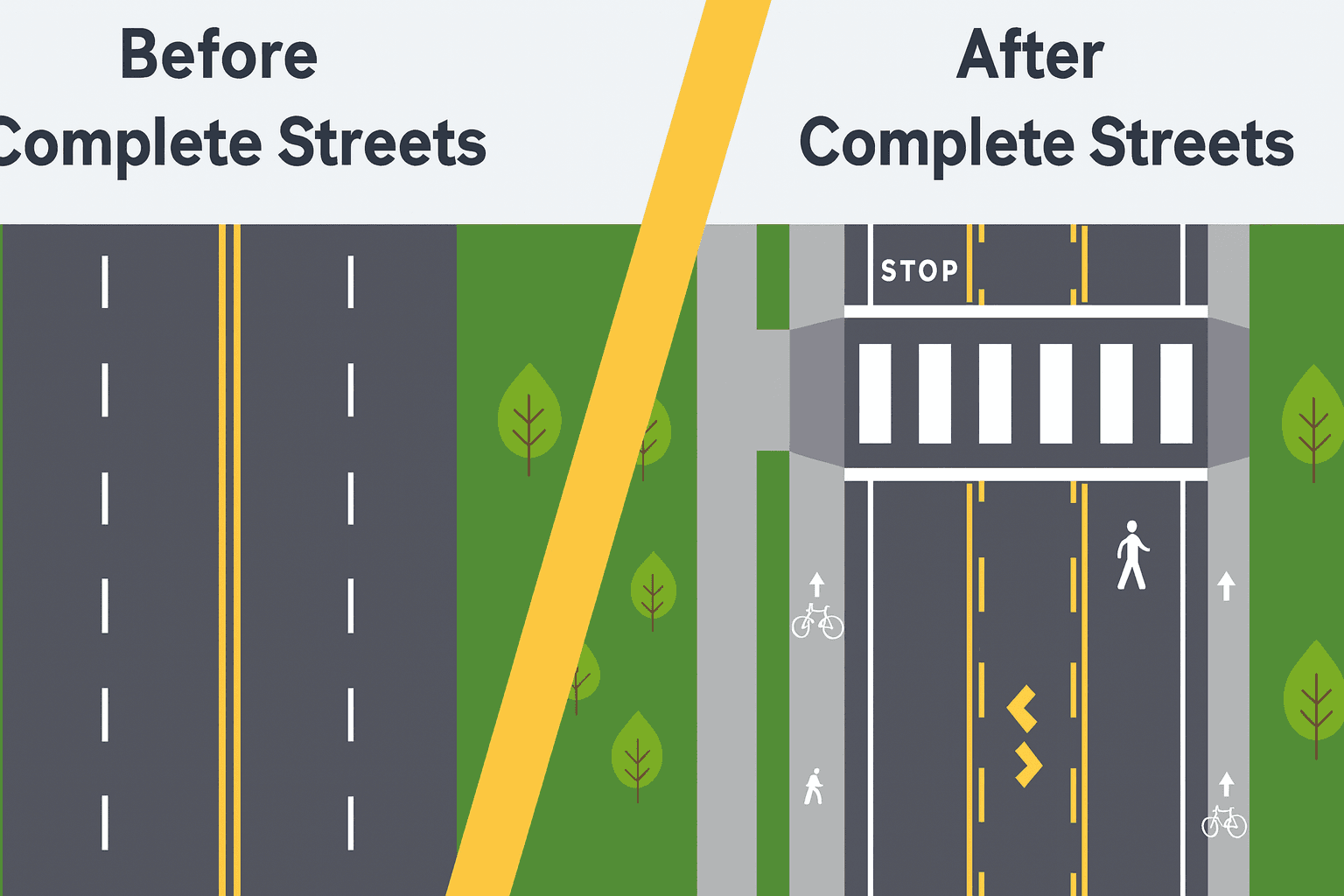Traverse City Moves Toward ‘Complete Streets’ Policy to Make Roads Safer and More Accessible for All
The Traverse City Commission is set to take its first look Monday at a long-anticipated Complete Streets policy, a comprehensive framework that could reshape how the city designs and manages its transportation network.

The Traverse City Commission is set to take its first look Monday at a long-anticipated Complete Streets policy, a comprehensive framework that could reshape how the city designs and manages its transportation network. The policy aims to ensure that every new or renovated street is safe and accessible for all users — including pedestrians, cyclists, drivers, transit riders, and people with disabilities. The draft was prepared by an ad hoc committee led by Commissioners Miriam Pico and Mi Stanley, who emphasized the importance of equity, accessibility, and environmental sustainability in future infrastructure planning.
Under the proposal, all transportation projects — from repaving to new construction — must take into account multiple modes of travel rather than prioritizing vehicles alone. Interim City Manager Benjamin Marentette said the process will include public engagement and opportunities for newly elected officials to provide input after the November election. “This is a long-term decision for the community,” he said. “We want every commissioner, new and returning, to have a voice before it’s finalized.” The initial review is scheduled for October 21, with final consideration expected in December 2025, following the local election cycle.
Meanwhile, discussion of the Bijou by the Bay theater and Carnegie Building has also been postponed until December to allow for broader public participation and review. Complete Streets policies are not new to Michigan — cities such as Grand Rapids and Ann Arbor have already adopted similar approaches to reduce traffic accidents, promote walking and biking, and improve overall urban livability. The timing is significant.
Traverse City’s population grew 6.8% between 2010 and 2020, from 14,674 to 15,678 residents, while the greater metro area expanded 5.5% since 2014. That steady growth has intensified concerns about congestion, infrastructure wear, and the need for safer, more sustainable urban design. If adopted, the policy would mark another step in Traverse City’s evolution toward a greener, more forward-thinking community — one where streets are built not just for cars, but for the people who live, work, and move through them every day.


